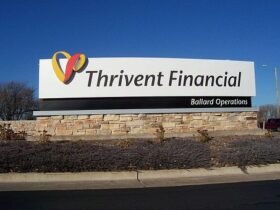Introduction
Charitable organizations play a vital role in shaping stronger, more resilient communities. Whether it’s through education, healthcare, housing, or poverty alleviation, nonprofits depend on both donations and strategic financial management to continue their missions effectively. However, many charities often face financial constraints, resource shortages, and lack of access to professional planning tools. This is where Capital One financial planning for charities becomes increasingly important. As one of the leading financial institutions in the United States, Capital One has developed targeted solutions, philanthropic commitments, and financial tools designed specifically to support nonprofits. From banking services to grant funding and pro bono expertise, Capital One helps charities create long-term sustainability while amplifying their community impact.
Understanding Capital One’s Role In Charitable Financial Planning
Capital One has positioned itself not just as a bank, but as a community partner for nonprofits. Financial planning is essential for charities because it provides the roadmap for resource allocation, donor management, and compliance with regulatory requirements. Through dedicated nonprofit banking solutions, Capital One offers customized services tailored to organizations that operate without a profit motive. This includes treasury management for cash flow, flexible credit solutions, and access to investment products that align with nonprofit goals. By focusing on financial education, digital literacy, and charitable support, Capital One has become a trusted partner for organizations striving to do more with limited resources.
Capital One Community Benefits Plan (CBP)
One of the most significant initiatives demonstrating Capital One financial planning for charities is the Community Benefits Plan (CBP). Announced as a multi-year, multi-billion-dollar commitment, the CBP allocates resources toward affordable housing, small-business growth, community development, and philanthropy. For nonprofits, this means improved access to funding streams that can strengthen programs and services.
The CBP earmarks billions of dollars in community development financing, including affordable housing investments, grants to community development financial institutions (CDFIs), and lending programs designed for underserved communities. Beyond numbers, Capital One has also promised annual updates and public reporting, ensuring that charities and local organizations remain informed about funding opportunities. This plan reinforces the idea that financial planning is not only about money management but also about fostering transparency, inclusivity, and accountability.
Banking & Financial Services For Nonprofits
Charities often require specialized financial services that differ from for-profit businesses. Capital One recognizes this distinction and has built a suite of nonprofit banking solutions designed to handle the unique needs of mission-driven organizations. For example:
- Treasury management helps charities monitor donations, track expenses, and maintain liquidity for programs.
- Lending solutions provide flexible credit options, allowing nonprofits to expand their reach without disrupting operational cash flow.
- Asset and retirement management services ensure that nonprofit employees also have access to financial security, which contributes to workforce stability.
By providing these tailored solutions, Capital One empowers charities to operate more like sustainable enterprises. This shift in mindset—treating nonprofits as organizations that deserve the same level of professional financial services as corporations—can make the difference between survival and long-term growth.
Capital One Foundation & Philanthropy
Beyond banking, the Capital One Foundation plays a crucial role in advancing education, workforce development, and community improvement. For charities, this opens doors to direct grant opportunities and collaborative partnerships. The Foundation invests in programs that address literacy, early childhood education, after-school learning, and community development projects. Many local and national nonprofits have benefited from these funds, enabling them to scale operations and reach more beneficiaries.
For example, in specific regions, Capital One has invested directly in community development organizations and minority-serving nonprofits. These strategic philanthropic investments ensure that nonprofits working at the grassroots level have the financial resources to expand their mission-driven work. This dual approach—combining banking solutions with grant support—makes Capital One an invaluable ally for charities nationwide.
Digital Tools & Financial Literacy For Charities
Modern charities cannot thrive without embracing digital transformation. Recognizing this, Capital One has created a robust set of digital tools and educational resources aimed at improving nonprofit financial literacy. Through partnerships with organizations like Khan Academy, Capital One offers free online courses covering financial basics, tax planning, and budgeting for organizations. Additionally, the “Money & Life” program provides workshops, one-on-one mentoring, and exercises that help nonprofit leaders make informed financial decisions.
These tools are particularly valuable for smaller charities that lack in-house financial expertise. By equipping nonprofit leaders with the skills to manage finances more effectively, Capital One enhances their ability to sustain programs, attract donors, and demonstrate transparency. In today’s competitive funding environment, financial literacy can directly influence a charity’s ability to secure grants and donations.
Volunteer & Pro Bono Services
While funding and banking services are important, professional expertise can be equally impactful. Capital One has invested heavily in pro bono programs that allow its associates to donate time and skills to nonprofits. Since 2020, thousands of volunteer hours have been dedicated to helping charities with strategic planning, data analysis, marketing, and technology development.
For example, food banks have benefited from data modeling projects that optimize distribution, while smaller charities have gained guidance in scaling their operations sustainably. These pro bono contributions exemplify the holistic approach of Capital One financial planning for charities—not just offering money but also providing the tools and knowledge needed for long-term success.
Tax & Wealth-Planning Guidance For Charities
Another area where Capital One supports nonprofits is in the realm of tax and wealth planning. Many charities face challenges in maximizing donations, complying with IRS regulations, and educating donors about tax-efficient giving. Capital One provides educational resources and guidance on charitable tax deductions, helping nonprofits better engage donors and strengthen fundraising strategies.
Additionally, wealth-planning tools allow nonprofits to collaborate with donors who wish to leave legacy gifts or create tax-efficient giving strategies. This ensures that both donors and charities benefit from optimized financial planning, creating a win-win situation for long-term sustainability.
Inclusivity & Accessibility In Nonprofit Support
Capital One has also made inclusivity and accessibility central to its nonprofit support initiatives. Many smaller and minority-led organizations lack equal access to financial services. To bridge this gap, Capital One has developed initiatives targeting digital inclusion, accessibility for people with disabilities, and support for diverse nonprofit leaders. By investing in technology and offering specialized resources, the company ensures that financial planning solutions are not limited to large, established charities but are accessible to organizations of all sizes.
This commitment to inclusivity aligns with Capital One’s broader mission of building communities that thrive through equity, diversity, and sustainability.
SEO-Driven FAQ Section
How can charities access Capital One’s financial planning services?
Nonprofits can reach out through Capital One’s dedicated nonprofit banking group or community engagement portals to explore tailored services and grant opportunities.
What is the Capital One Community Benefits Plan?
The CBP is a multi-billion-dollar initiative aimed at funding affordable housing, small businesses, and charitable projects over a multi-year timeline.
Does Capital One offer grants for charities?
Yes, through the Capital One Foundation and philanthropic commitments, nonprofits can apply for grants and community investments.
How can nonprofits benefit from pro bono programs?
Charities can receive professional expertise in areas like strategy, finance, and technology through Capital One’s associate volunteer programs.
Conclusion
Financial planning is the backbone of nonprofit sustainability, and with the right support, charities can focus more on their mission and less on financial obstacles. Capital One financial planning for charities provides a comprehensive approach that combines banking solutions, grant opportunities, pro bono services, and educational resources. From the Community Benefits Plan to digital literacy programs, Capital One has established itself as more than a financial institution—it is a community partner committed to empowering nonprofits. For charities looking to build long-term stability and maximize their impact, leveraging Capital One’s services and initiatives can be a strategic step toward achieving their goals.
Do Read: Stonk-O-Tracker Guide





